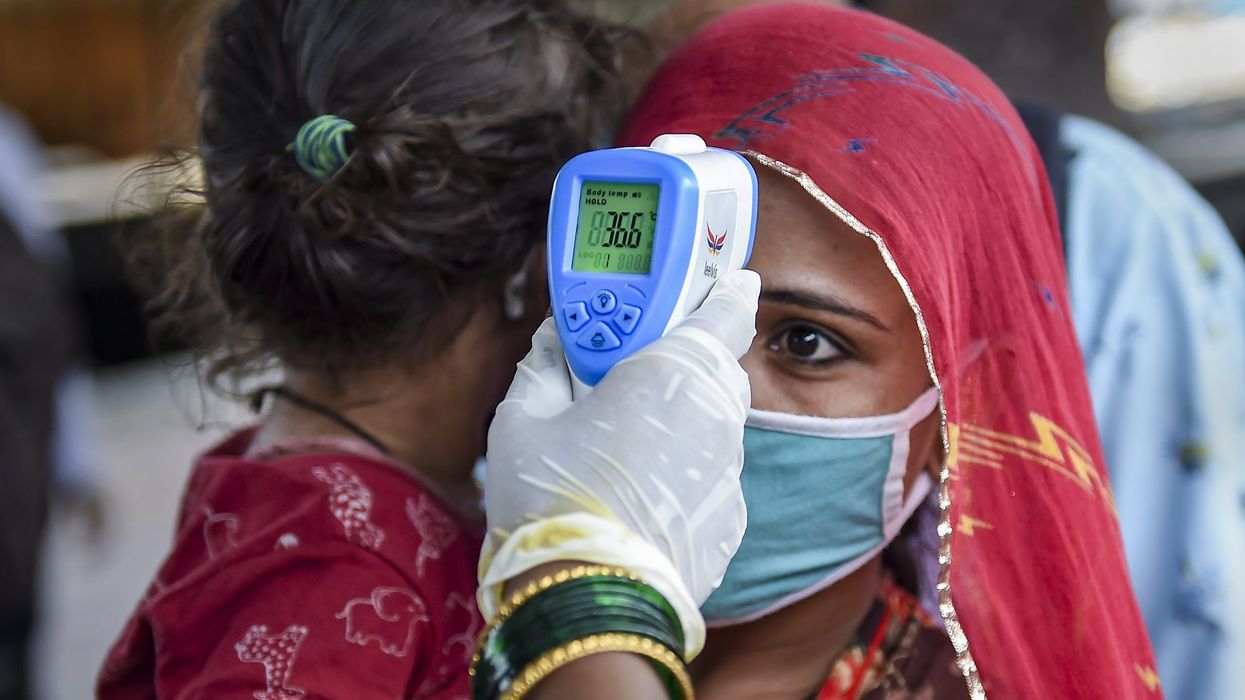INDIA'S recovery rate went up to 90 per cent while daily Covid-19 infections of 2,11,298 took the total tally to 2,73,69,093, according to the union health ministry data on Thursday (27).
The death toll due to Covid rose to 3,15,235 with 3,847 new fatalities being reported in a span of 24 hours.
There were 21,57,857 Covid-19 tests conducted on Wednesday (26), as the country's daily positivity was recorded at 9.79 per cent. It has been less than 10 per cent for three consecutive days now, the ministry said.
Moreover, the weekly positivity rate has also declined and now stands at 10.93 per cent.
The count of active cases has further reduced to 24,19,907, which is 8.84 per cent of the total infections, while the national Covid-19 recovery rate has improved to 90.01 per cent, the data showed.
The number of people who have recovered from Covid has surged to 2,46,33,951, while the case fatality rate stands at 1.15 per cent, it also stated.
India crossed the grim milestone of two crore Covid-19 cases on May 4.
The 3,847 new fatalities include 992 from Maharashtra, 530 from Karnataka, 475 from Tamil Nadu, 193 from Uttar Pradesh, 185 from Punjab, 153 from West Bengal, 151 from Kerala, 130 from Delhi, 107 from Rajasthan and 106 from Haryana.
The health ministry said that more than 70 per cent of the deaths that occurred are due to comorbidities.
"Our figures are being reconciled with the Indian Council of Medical Research," the ministry said on its website, adding that state-wise distribution of figures is subject to further verification and reconciliation.
Local trials scrapped to fast-track imports
Meanwhile, India on Thursday (27) has scrapped local trials for "well-established" foreign covid-19 vaccines to fast-track imports as it battles a devastating second wave of the pandemic.
India recorded its highest Covid-19 death toll since the pandemic began last year in May, accounting for just over a third of the overall total.
India has been inoculating its people with the AstraZeneca vaccine produced locally at the Serum Institute, Covaxin made by local firm Bharat Biotech, and has begun rolling out Russia's Sputnik V.
But supplies are far short of the millions of doses the world's second-most populous country needs.
The government said it was in talks with Pfizer for "earliest possible" imports of its shots and that it had also had discussions with Johnson & Johnson and Moderna .
Last month, India pledged to fast-track approvals for foreign vaccines but its insistence on local trials was a key reason for stalled discussions with Pfizer.
"The provision has now been further amended to waive the trial requirement altogether for the well-established vaccines manufactured in other countries," the government has said in a statement.




